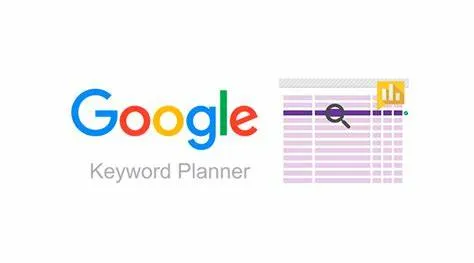In the dynamic world of digital marketing, keyword research is the cornerstone of effective Search Engine Optimization (SEO). It helps businesses understand what their target audience is searching for and how they can align their content to meet those needs. Among the various tools available, Google Keyword Planner stands out as one of the most reliable and widely used options. Whether you’re a seasoned marketer or just starting out, understanding the pros and cons of Google Keyword Planner can help you make the most of your SEO efforts. Let’s explore what makes this tool popular, review its strengths and weaknesses, and summarize its value for your marketing strategy.
What is Google Keyword Planner?
Google Keyword Planner is a free tool provided by Google as part of the Google Ads platform. Originally designed to help advertisers choose the right keywords for their paid campaigns, it has become an indispensable tool for SEO professionals as well. The tool allows users to discover new keywords, see estimates of search volumes, and understand the level of competition for each keyword. This information is crucial for creating content that ranks well on Google’s search engine results pages (SERPs).
The Pros of Using Google Keyword Planner
- Cost-Effective: One of the biggest advantages of Google Keyword Planner is that it’s free. While some features are tied to having an active Google Ads account, you can access a wealth of keyword data without spending a penny. This makes it an excellent choice for small businesses and individuals on a tight budget.
- Accurate Data: Since Google Keyword Planner pulls data directly from Google’s search engine, it offers some of the most accurate and reliable keyword data available. This includes search volumes, competition levels, and bid estimates, which are essential for both organic and paid campaigns.
- Integration with Google Ads: For those running paid search campaigns, Google Keyword Planner offers seamless integration with Google Ads. This allows users to easily transition from keyword research to ad creation, optimizing their campaigns for maximum impact.
- Broad Keyword Ideas: The tool generates a wide range of keyword suggestions based on your input, helping you uncover long-tail keywords and niche terms that might otherwise be overlooked. This is particularly useful for targeting specific segments of your audience.
The Cons of Using Google Keyword Planner
- Limited Organic SEO Features: While Google Keyword Planner is great for basic keyword research, it’s primarily designed for paid advertising. This means it lacks some of the more advanced SEO features found in other tools, such as backlink analysis, keyword difficulty scores, and SERP analysis.
- Generalized Search Volume Ranges: One of the most common criticisms of Google Keyword Planner is that it often provides search volume estimates in broad ranges (e.g., 1K-10K searches per month). These ranges can make it difficult to gauge the true popularity of a keyword, especially for those looking to target highly specific terms.
- Requires a Google Ads Account: While the tool is free, you do need to set up a Google Ads account to access it. For those who are not planning to run paid campaigns, this extra step might feel unnecessary and cumbersome.
How Popular is Google Keyword Planner?
Google Keyword Planner remains one of the most popular tools for keyword research, particularly among small businesses and digital marketers. Its popularity is bolstered by its integration with Google Ads and the fact that it’s free. According to a 2023 survey of SEO professionals, nearly 80% of respondents reported using Google Keyword Planner as part of their keyword research strategy. The tool’s widespread use is also reflected in its consistent search interest over the years, as seen in Google Trends data.
Moreover, Google Keyword Planner is often recommended as the starting point for keyword research, especially for those new to SEO. Its straightforward interface and accurate data make it a go-to choice for millions of users worldwide.
Review: Is Google Keyword Planner the Right Tool for You?
Google Keyword Planner is a reliable and accessible tool that offers solid keyword research capabilities, particularly for those focused on Google Ads campaigns. Its cost-effectiveness, accuracy, and integration with Google Ads make it an invaluable resource for advertisers. However, its limitations in providing detailed organic SEO data mean that more advanced users may need to supplement it with other tools.
If you’re just starting with SEO or primarily interested in paid search, Google Keyword Planner is an excellent choice. It offers a wealth of data without the need for expensive subscriptions, making it an attractive option for businesses of all sizes. However, if you’re looking to dive deeper into organic SEO, you may want to consider using it in conjunction with other, more specialized tools.
Summary
In conclusion, Google Keyword Planner is a powerful tool that has earned its place as a staple in the digital marketer’s toolkit. Its free access to accurate keyword data, easy integration with Google Ads, and broad keyword suggestions make it a great starting point for anyone looking to improve their SEO. While it does have its limitations—particularly for advanced organic SEO—the tool’s popularity and effectiveness are undeniable. Whether you’re a beginner or a seasoned marketer, Google Keyword Planner can help you uncover valuable keyword opportunities and enhance your online visibility. If you’re looking for a reliable, no-cost solution for your keyword research needs, Google Keyword Planner is definitely worth considering.
- Ahrefs Backlink Checker
- Answer the Public
- BuzzSumo
- Can I Rank
- Cloudflare
- Dead Link Checker
- Google Analytics
- Google PageSpeed Insights
- Google Search Console
- Google Trends
- GTMetrix
- Hunter.io
- Keyword Tool
- Mangools SERP Simulator
- Moz Link Explorer
- Rank Math
- Screaming Frog SEO Spider
- SEMrush Free Version
- SEOquake
- SimilarWeb
- To WebP
- Ubersuggest
- Woorank’s SEO & Website Analysis
- Yoast SEO
